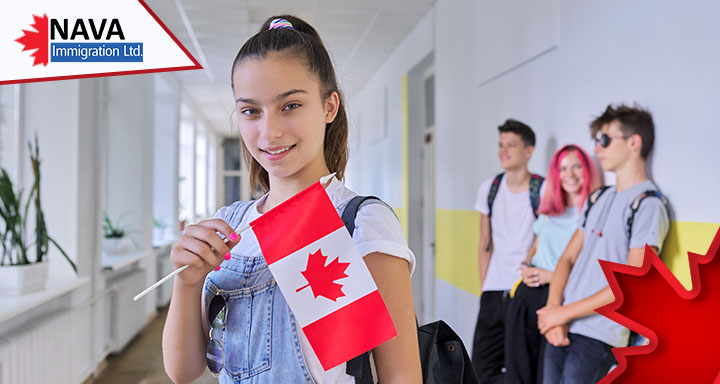Who is Eligible to Study in Canada Without a Study Permit?
A study permit authorizes international students to study in Canada. It’s a necessary document for overseas students to enter Canada, get admission to Canadian DLIs, and pursue study there. However, recently, IRCC announced a cap on the number of study permits that can be issued within the next two years. Thus, international students may seek alternative pathways to studying in Canada. If you are among those, this guide is for you. Find who is eligible to study in Canada without a study permit.
Who is eligible to study in Canada without a study permit
According to IRCC, there are some exceptions to the rule that most foreign nationals who wish to pursue education in Canada must get a study permit.
In particular, IRCC suggested eight categories of foreign nationals who are eligible to study in Canada without a study permit. These are as follows:
1. Short-term Students
International students who come to Canada to study in a post-secondary program lasting six months or less do not need a study permit.
2. Foreign representative’s Family or staff
If you are a family member or a staff member of a Global Affairs Canada (GAC) accredited foreign representative in Canada, you may not require a permit to pursue education in Canada.
Notably, your embassy may reach out to GAC to determine whether you need a study permit.
3. Members of the foreign armed forces
Some members of foreign armed forces groups do not need a study permit to pursue an education in Canada if they are on official duty in Canada.
In particular, this applies to military or civilian persons serving in the armed forces of countries listed in Canada’s Visiting Forces Act (VFA).
Notably, the family members of individuals in foreign armed forces who want to study in Canada may still need a study permit. This includes minor children as well.
Note: Qualified armed forces members should have a letter of acceptance from the Department of National Defence in Canada.
4. Registered Indians in Canada
Individuals who have a registered Indian status in Canada do not need a study permit to enroll in educational programs in the country. This is true even if they are a citizen of another country.
It’s worth noting that being a citizen of India and having a Registered Indian status are two different things. This means holding the status of an indigenous person in Canada.
5. Minor children in Canada
Certain minor children in Canada do not need a study permit if they fall under any of the five categories:
- If the minor child is a refugee or has claimed for refugee status
- If the parents of the minor child are refugees or refugee claimants
- The parents of a minor child are citizens or permanent residents of Canada
- If the minor child is enrolled in a preschool, primary school, or secondary school and who is accompanied by a parent who is permitted to study or work in Canada
- If the minor child is attending preschool, primary school or secondary school but they are not accompanied in Canada.
6. Temporary residents (TRs) and asylum seekers enrolled in French language & culture courses
In Canada, eligible TRs or asylum seekers don’t need a study permit to be admitted to French language and cultural integration courses in Quebec.
7. Temporary residents pursuing settlement and integration courses
Individuals in Canada who are taking provincial or territorial managed settlement and integration courses to settle in Canada don’t need a study permit.
8. Foreign Workers in Canada
Certain overseas workers in Canada may qualify to study in the country without requiring a study permit if they satisfy the following conditions:
- If they hold a valid work permit issued on or before June 7, 2023; or
- If they hold a letter issued on or before June 7, 2023. And it must authorize them to work while IRCC processes their work permit application/extension.
Understanding the benefits of obtaining a study permit for minor children.
In Canada, certain foreign nationals can pursue their education without requiring a study permit. However, there are some benefits to applying for and obtaining a study permit in Canada.
As per IRCC, minor children with a reasonable study permit can avail of several opportunities, programs, and services in Canada.
These include the following:
- Secondary school co-op work permits
- Social services in some provinces and territories
- The opportunity to transition between education levels without changing permits or applying for a new permit
Minor children who wish to continue their studies in Canada have to apply for this student permit once they reach the age of majority, which is either 18 or 19, as per the province or territory of their residence.
General benefits of Canadian study permit for foreign nationals
In Canada, the major benefit of having a study permit is the permission to work while studying. It’s notable that international students who are registered in full-time courses at a Canadian Designated Learning Institution (DLI) are allowed to
Only registered full-time students with a study permit at work on or off campus during their course session. Note that it may depend on the conditions detailed on their permit.
On the other hand, foreign students without a study permit are not permitted to work while studying in Canada. If they want to, they must apply for a separate work permit.
Are you interested in immigrating to Canada but have concerns about the process and pathways? Feel free to connect with our experienced immigration experts for help at NavaImmigration. You can also send us an email at [email protected]





